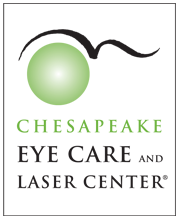Chesapeake Cataract Center
A Chesapeake Eye Care Center of Excellence
The Chesapeake Cataract Center is a private, state-of-the-art, Medicare-certified surgical care facility integrated within The Chesapeake Eye Care and Laser Center in Annapolis on the Anne Arundel Medical Campus. At this world-class Center of Excellence, Dr. Heather Nesti, Dr. Gaurav Srivastava, Dr. Olivia Dryjski, Dr. Luke Chang and Dr. Daliya Dzhaber offer cataract patients personalized attention and customized treatments that result in an unparalleled patient experience. These five renowned surgeons, along with the Center’s highly trained cataract care specialists, provide the most advanced testing and technology available to ensure optimal results.
Even though cataract surgery has become one of the most common surgical procedures in the U.S., selecting the right doctor and the right facility are important considerations. Choosing the Chesapeake Cataract Center is a decision patients can make with confidence. Among the Center’s many qualifications include:
Experienced Surgeons
- The Chesapeake Cataract Center’s award winning, board-certified surgeons are highly trained experts who have performed over 25,000 cataract surgeries.
Results Oriented
- The Chesapeake Cataract Center’s surgeons provide the best results possible to improve the full range of vision and minimize, if not eliminate, dependence on glasses.
Innovative Technology
- The practice is the first in Anne Arundel County to offer patients the bladeless LenSx® Laser for cataract surgery. By offering bladeless LenSx Laser cataract surgery with the latest lens options available, and ORA Precision Vision technology for increased accuracy and vision correction, the Center’s surgeons can truly customize each procedure to suit a patient’s preferred lifestyle. This innovative technology is revolutionizing cataract surgery and optimizing the outcomes patients are experiencing.
Integrated Surgery for Complicated Vision Cases
- In many cases, cataract patients have other vision or medical issues, such as astigmatism, glaucoma, diabetes or previous surgeries. The Chesapeake Eye Care and Laser Center doctors bring valuable expertise and specialized training that allow patients the comfort of knowing their complex conditions are carefully evaluated prior to any cataract procedure.
The Doctors’ Choice
- Medical professionals from all over the region choose the Center for themselves and their families, as well as for their patients.




